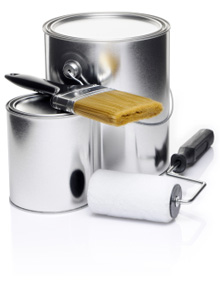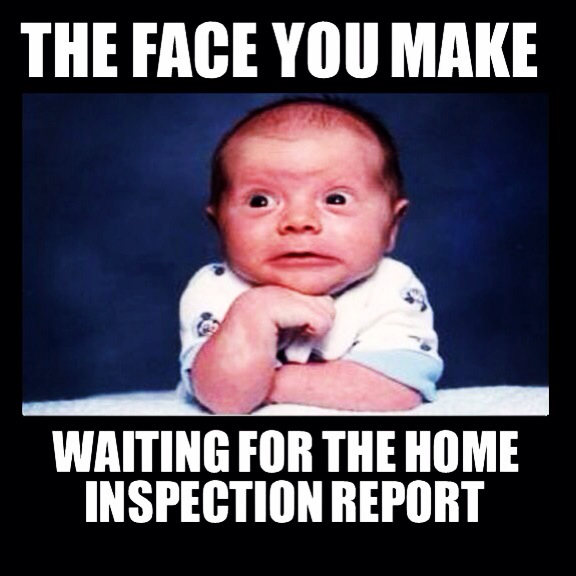When a House Shows You What it is, Believe It.

I live in Denver. The houses here can be pretty old. Beautiful Victorians, Denver Squares and Craftsman Bungalows line the graceful streets with their Dutch Elm trees and cracked sidewalks. As a real estate agent who specializes in the downtown Denver neighborhoods, I know these homes, some of them rather intimately. When my buyers are swept off their feet by a charming Congress Park home, the first thing I tell them before we write the offer is “Don’t get too excited until after the inspection.”
Regardless of the snappy remodel and those shiny granite counters, over 40% of previously owned homes on the market have at least one major defect. Even the ‘gently used’ newer homes, like the Mid-Century Modern homes in my Dream House Acres neighborhood most likely needs some repair or improvement, that’s to be expected. The trick is to find out what problems may be lurking up ahead and avoid them or know the price of the remedy. My suggestion for both buyers and sellers is to get an inspection.
There are many things you can do to gather information on your new home, depending on how deep you want to go and how much you want to spend. A home inspection and sewer scope are essential, though you can add radon and mold testing, meth lab testing, surveys, air & soil samples, you name it. No matter how far you go, there are sure to be some surprises, the trick is to uncover them first. Sellers can benefit from a pre-listing inspection in two ways. 1. Prepare yourself for issues that may concern your buyer and address them before going on the market. 2. For a quick sale, offer your buyer your inspection report along with the neighborhood comps and a price that reflects any pressing repairs. That way you can show the value and be firm on your price.
The most serious things to be on the lookout for are:
• Horizontal foundation cracks. Diagonal stress around window sills and thresholds is pretty normal in an old house, but the horizontal cracks require more information and perhaps the advice of a structural engineer.
• Major house settlement. Everything settles, but you shouldn’t feel like you’re at sea when you’re walking down the hallway. I see homes in Park Hill and the Highlands, as well as other Denver neighborhoods, with hardwood floors that slant or slope. Some of these houses are 100 years old, most of the settling has already occurred. If it feels wonky, have a good talk with your home inspector or ask for one who is a structural expert.
• Broken or cracked sewer line or tap. Always have the sewer line checked before you buy. Always. Even if you have to scope, pay for the roots to be cleaned out and re-scope, it’s worth it. You want to know the integrity of the line, its connections and what that line is made of. Sewer line issues are not always deal breakers, often times the seller (even the banks) will give you a credit for repairs. What you don’t want is for that puppy to break just as you put that last piece of Grandma’s china in the hutch.
• Defective roof or flashings. Putting on a new roof can be expensive and like a sewer line, it’s not too sexy. Cost varies as well, depending on the type of roof currently on the house and whether it can be repaired. If the roof is middle-aged with little or no damage, have your agent (that’d be me of course 😉 ask the seller for a five year certification.
• Cracked heater exchange or failing air-conditioning compressor. Here again, I always ask that the heating and air systems be cleaned and certified by a licensed HVAC technician.
1. Chimney settling or separation. You will want to know if your beautiful wood-burning fireplace is in good working condition or if it can be converted to gas. An inspection of the chimney is your first step, though I would strongly advise you have a chimney expert out to take a look before you light a fire.
• Moisture in the basement. Once again, not always a deal breaker but you want to know the cause and if it’s been fixed. Moisture is the leading cause of foundation problems and mold so follow the water.
• Mixed plumbing. Many times upgrades have been done over time in these old houses, mixing copper pipe with the original galvanized plumbing. Get an idea of what you’ve got and how much it would cost to convert all to copper either now or in the future.
• Aluminum wiring and an undersized electrical system. We use a lot more electricity now than in 1920 when the house was built. Look to see if the wiring is aluminum and how big the electrical panel is. Being under-energized can cause breakers to blow, lights to flicker and present a possible fire hazard. Now, I’ve sold plenty of homes with older wiring and less than state-of-the-art sub-panels but if you have any doubt, call an electrician.
• Infestation. Though termites and carpenter ants are not as common in Colorado as they are in other markets, they do exist here. During the winter, critters like squirrels, pigeons and raccoons can nest under decks and porches or in eaves and attics. Be on the alert for any potential access points so you’re not harboring refugees come springtime.
• Environmental hazards including underground plumes, radon, asbestos, and lead-based paint. Unless they’ve been abated, nearly all of these old houses have some lead based paint somewhere under those layers; radon and asbestos are also common. If the radon levels are in the acceptable range and the asbestos is contained, you may not ever have an issue and both can be mitigated. Many cities have underground plumes or areas where water has been shown to have a higher risk of contamination. You can find out by searching Google as most of this is in public record. . It is always a good idea to hire an environmental expert to assess any health risks or concerns you may have about the home.
Have I scared you right out of the contract? Not to worry. The big message here is to make sure you hire the experts. A certified home inspector will provide clearer and better information than your Uncle Louie, even though he knows his way around a house. Have your agent schedule your inspections as soon as you go under contract and make sure to be there along with your Realtor. You’ll want to ask a ton of questions and make sure you get a complete package of the inspection report.
Knowledge is your best protection against buying a home based more on emotions, rather than as a sound investment. Knowing what is up ahead brings peace of mind.







